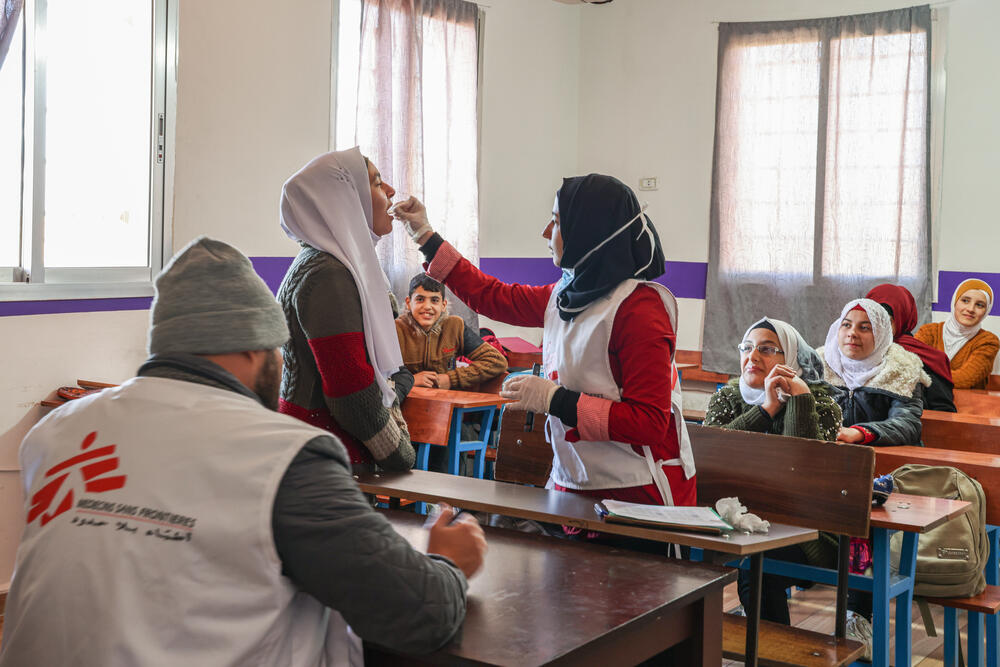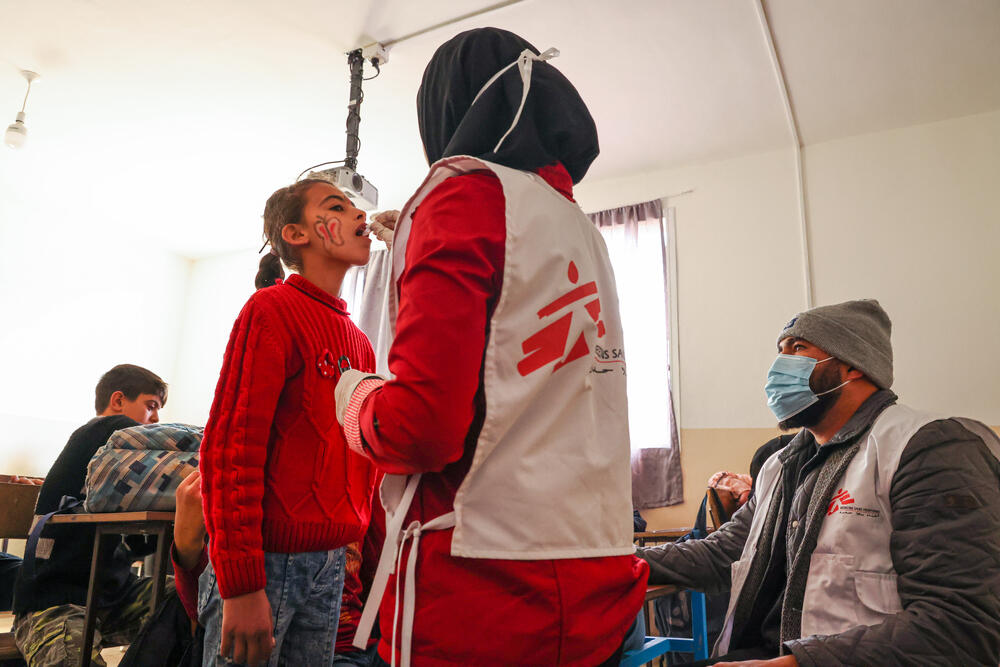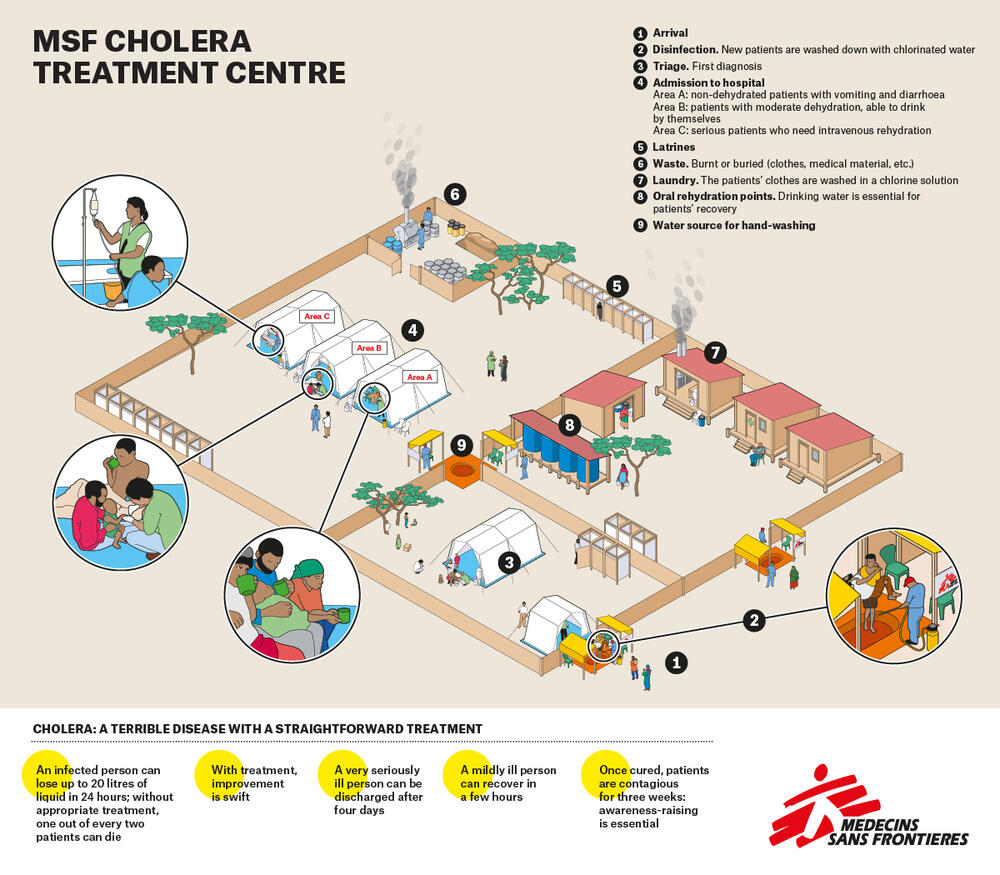How MSF is tackling cholera outbreaks in 10 countries
15 December 2022
What is cholera?
Cholera is a disease, caused by bacteria that infect the intestines after people have ingested contaminated water (or food). The bacteria cause very severe diarrhoea, and sometimes vomiting. The diarrhoea is so severe that a sick person quickly gets dehydrated and this can lead to death within hours.
The diarrhoea of cholera patients contains a lot of cholera bacteria. If wastewater with cholera bacteria somehow contaminates drinking water, which can happen surprisingly easily, cholera outbreaks can spread extremely fast.
Why are there so many cholera outbreaks today?
In 2022 at least 30 countries have seen outbreaks of cholera or cholera-like diseases. But this is not one big outbreak. For most countries, the current surge of cholera is due to specific, local conditions. The risk factors for cholera outbreaks are well known and always linked to access to clean drinking water and proper wastewater disposal.
Protracted political and/or military crises: this type of crises can lead to a lack of maintenance of drinking water and/or sewage infrastructure. This is the case today in countries like Haiti, Somalia and Syria.
Natural disasters: Heat and drought can reduce the amount of safe drinking water, forcing people to use unsafe sources. Floods on the other hand, can facilitate the bacteria’s spread to previously safe water sources. In 2022, countries like Somalia, Kenya and Ethiopia suffered from severe droughts. Others, like South Sudan and Nigeria, faced floods.
People on the move: Refugees often have to stay in places where there’s not enough access to clean water, and authorities often don’t invest in proper water and waste infrastructure in refugee camps. This year, there were cholera outbreaks in refugee camps in Lebanon, Somalia and Nigeria.
What are the challenges today?
Cholera is easy to treat, with oral rehydration for most patients, and intravenous rehydration for more severe cases. If treated in time, more than 99% of patients will survive the disease. Providing clean drinking water and correctly processing wastewater protects people from getting infected in the first place. There is also a good vaccine against cholera.
But treatment and prevention of cholera come with considerable logistic challenges. Setting up cholera treatment centres requires a lot of supplies, and so do water and sanitation projects. In places that are unsafe or otherwise difficult to access, that is a huge constraint. And just the number of outbreaks this year makes it very challenging. There’s already a shortage of cholera vaccines and the supply of other essential materials, like the fluid for intravenous rehydration, is also under pressure.
Additionally, sometimes governments don’t want to officially declare cholera outbreaks, often for political reasons. This makes it very difficult to adequately inform the population how they can protect themselves, and impossible to do cholera vaccination.
What is MSF doing today?
MSF is today running cholera programs in 10 countries (Kenya, Ethiopia, Somalia, Cameroon, Nigeria, Haiti, Lebanon, Syria, Malawi). Our teams are involved in cholera prevention: they do health promotion, water and sanitation works, and cholera vaccination. We’re also running cholera units to treat patients in medical facilities, and have set up bigger, separate cholera centres where hundreds of cholera patients can be admitted simultaneously.


